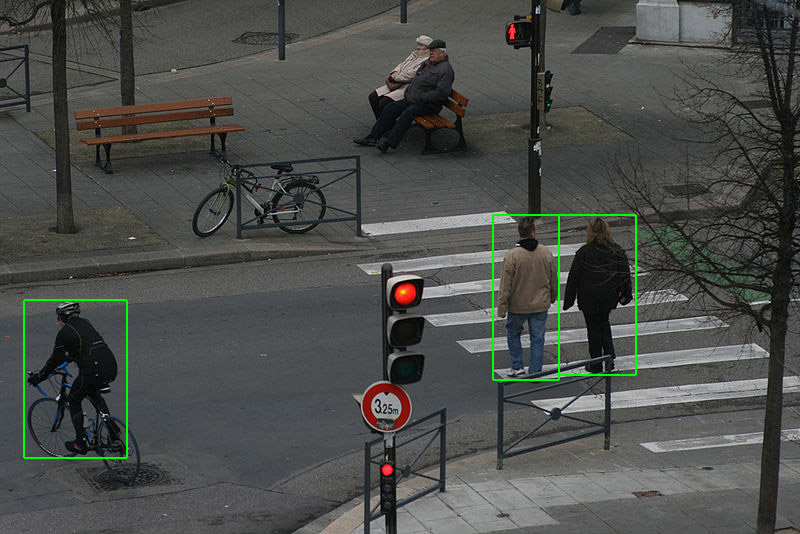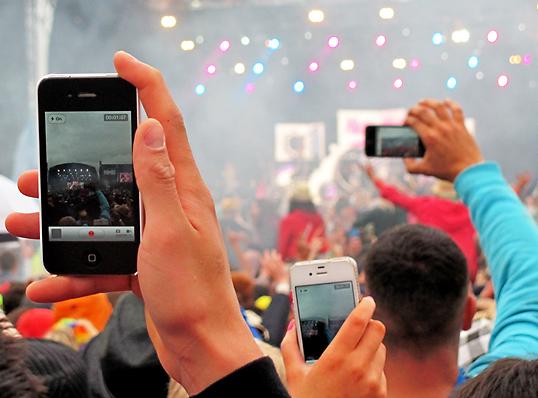
|
| Source |
The TV program A Current Affair revealed the inevitable and unsurprising story that at one particular shopping centre, security guards were perving on women by watching what the surveillance cameras were seeing, sometimes even saving the images. The outrage was one side of the story, but there was an elephant in the room − how is this any different to the security guard walking out of his office (he because I’m presuming the security guard fits the Hollywood cliché of being a bureaucratic, lazy, heterosexual man) and following the woman himself? A Current Affair even showed an incident of this happening, but left it at that without discussing the implications.

|
| Paul Blart, Mall Cop − a typical security guard? © Columbia Pictures |
Digital pictures have long been ignored by the law and even society’s demand for new laws. This is perhaps because the lack of physical presence prevents many of the potential bad scenarios. There is less intimidation from a creepy old man flashing his penis online vs in a park. Ideally though, these inconsistencies should not be accepted by society. A pervert flashing his penis or stalking a woman via cameras should be treated no differently to a pervert doing it in meatspace.
The terrible state of society’s perception of cameras is largely because they’re not aware of what’s possible. The state of the art is not just the recognition of faces, but the 3D reconstruction of visible objects and the recognition of meaningful activities, like people falling over, beer being drunk or bags being left unattended. The footage of you is useful to your robotic personal assistants. By being able to watch you, robotic assistants could measure how much alcohol you’ve drunk; they could track your mood throughout the day; or they could command doors to open for you as you approach.
 |
| Source |
Imperfect, corruptible humans are not actually all that necessary for overseeing security cameras. Computer vision can handle most tasks of a surveillance system and can alter the images appropriately if humans become necessary. Cameras watching the eyes of the guards could determine where they’re watching, give them a glance at a person, then blur that person out. The glance only needs to be long enough to get an impression of the person and to perhaps recognise them from earlier in the guard’s life. If they need a second look, brain scanners (eg) could detect that they want a look and could detect if the reason is simply to ogle. The event could also be logged.
You should realistically have easy access to all images and video of yourself. In fact, I would argue that all people in your user group should have access to images and video of you. Regardless if it was a human or robotic eye, parents should for instance be able to see their children in a hallway; diners should be able to see other diners in the restaurant at the same time as them; people in a public square should be visible to police and citizens; and you should be able to see yourself in the mirror. This is arguably what society has already deemed socially acceptable when applied to phone footage: there are popular paradigms like “stop filming and following me”, “what happens in Vegas stays in Vegas” and “we’re allowed to film police officers”. Not all cameras, but certainly all surveillance systems, should be forced to make their footage available with great ease to anyone with permission to see it.
 |
| Source |
The easy access to images by those entitled to see it would not just enhance the ability of robotic assistants, but would assist those who already eventually get access to the images. In the NSW Coroner’s report on the death of Roberto Laudisio Curti for instance, Jeremy Gormly submitted, "it is hard to avoid commenting on the enormous value to this investigation of the various electronic recording systems, particularly CCTV, throughout the city, installed both by the City of Sydney Council and by a very large number of businesses. The cameras, despite at times showing only fleeting images, enabled Roberto’s route and the timing of his movements to be determined. The time saved has been remarkable, but the greatest benefit was to be able to establish precisely places, times and actions which might otherwise have remained speculative."
 |
| Roberto Curti being chased by police. Source |
Imagine if the Lindt café had been using such an access control system for its surveillance footage − the police could’ve seen all the footage live and quickly determined that there was no second gunman and that there probably wasn’t a bomb in his bag.
 |
| Source |

No comments:
Post a Comment